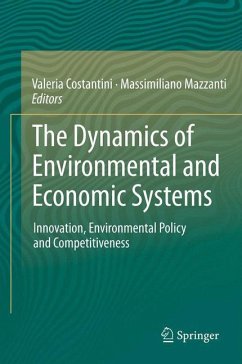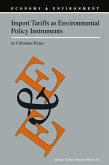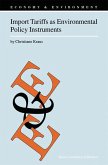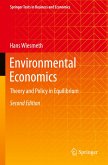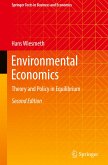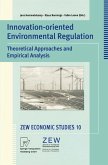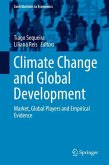Exploiting econometric techniques aimed at dealing with the dynamics of economic systems and the heterogeneity of agents performances, the volume integrates innovation-based reasoning with ex-post analyses, and presents ex-ante analyses able to evaluate the role of climate change policies by using computable general equilibrium models such as the Global Trade Analysis Project for Energy (GTAP-E). The authors merge and use a range of datasets, including OECD-PATSTAT and STAN, to test novel techniques informed by evolutionary economic theories and the Porter hypothesis. The immediate relevance and applicability of the models will strengthen the hand of policy analysts for whom the dynamic efficiency of environmental policy is a new, high-profile evaluation criterion. This book looks for responses to the need for more complex dynamic reasoning in environmental economics by developing a series of both theoretical and empirical integrated approaches. The quartet of core and interlinked issues addressed are central to the requirements of policy makers and scholars who require robust methodologies for assessing the role played by innovation and environmental policy in determining economic performance. The volume examines the potential alternative uses of recently available hybrid economic-environmental accounting at meso-level, both for ex-ante and ex-post analysis. It studies the deployment of dynamics to explain the co-evolution of economic and environmental systems. The authors also explore how technological innovation drives sustainability goals, and demonstrate the importance of working at sector level rather than at aggregated national level.
Exploiting econometric techniques aimed at dealing with the dynamics of economic systems and the heterogeneity of agents performances, the volume integrates innovation-based reasoning with ex-post analyses, and presents ex-ante analyses able to evaluate the role of climate change policies by using computable general equilibrium models such as the Global Trade Analysis Project for Energy (GTAP-E). The authors merge and use a range of datasets, including OECD-PATSTAT and STAN, to test novel techniques informed by evolutionary economic theories and the Porter hypothesis. The immediate relevance and applicability of the models will strengthen the hand of policy analysts for whom the dynamic efficiency of environmental policy is a new, high-profile evaluation criterion.
Exploiting econometric techniques aimed at dealing with the dynamics of economic systems and the heterogeneity of agents performances, the volume integrates innovation-based reasoning with ex-post analyses, and presents ex-ante analyses able to evaluate the role of climate change policies by using computable general equilibrium models such as the Global Trade Analysis Project for Energy (GTAP-E). The authors merge and use a range of datasets, including OECD-PATSTAT and STAN, to test novel techniques informed by evolutionary economic theories and the Porter hypothesis. The immediate relevance and applicability of the models will strengthen the hand of policy analysts for whom the dynamic efficiency of environmental policy is a new, high-profile evaluation criterion.

